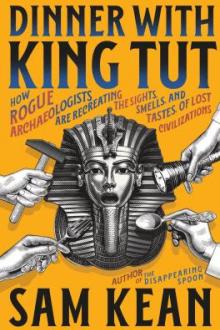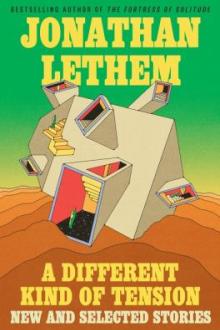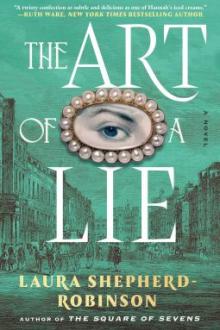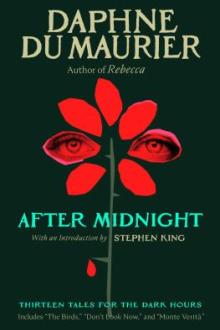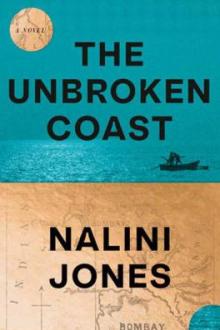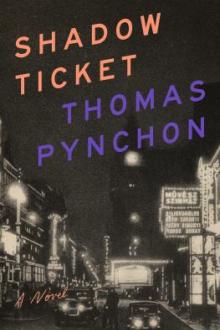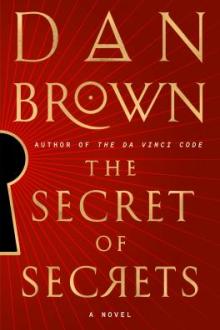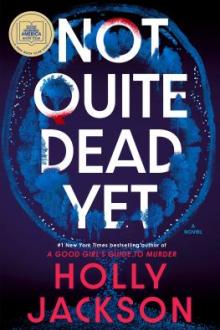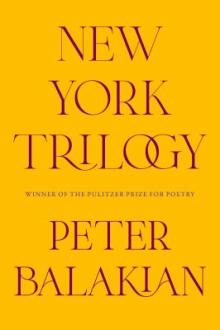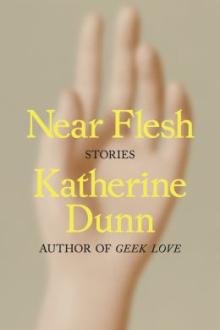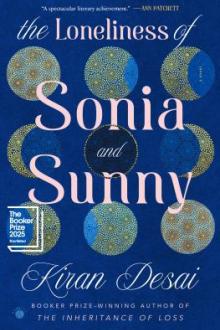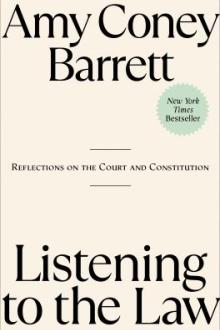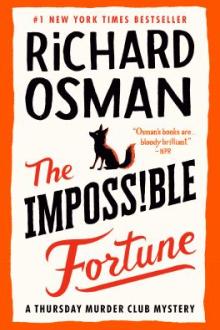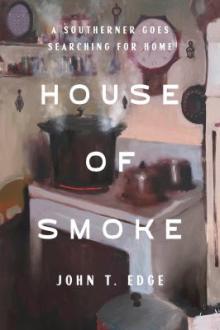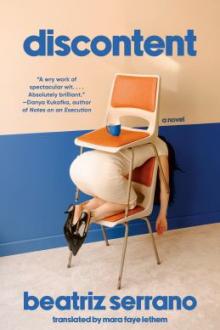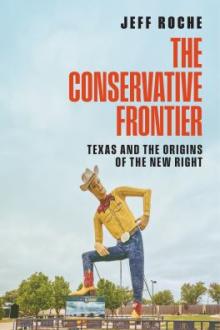ODY New Books Collection
New Books
Eden's
Clock
Authored by: Norman Lock
"Rendered mute at the Battle of Gettysburg, Frederick Heigold returns to Dobbs Ferry, New York, where he marries a resolute suffragist and resumes his vocation as a clocksmith. Bereft after she dies in a freak accident, he accepts a commission to repair the enormous clock on the San Francisco Embarcadero, but the routine railway journey becomes a six-month odyssey. Finally reaching the Pacific, after having survived imprisonment, shipwreck on Edisto Island, and run-ins with assorted roughnecks and thieves, he happens upon novelist Jack London drinking in the Palace Hotel bar--just before the deadliest natural disaster in United States history. Eden's Clock, the twelfth and final stand-alone book in The American Novels series, calls into question the American belief in individualism to shape our destiny when confronted with irrepressible, chaotic forces"-- Provided by publisher
Dinner with King Tut
How Rogue Archaeologists Are Re-Creating the Sights, Sounds, Smells, and Tastes of Lost Civilizations
Authored by: Sam Kean
"Whether it's the mighty pyramids of Egypt or the majestic temples of Mexico, we have a good idea of what the past looked like. But what about our other senses: The tang of Roman fish sauce and the springy crust of Egyptian sourdough? The boom of medieval cannons and the clash of Viking swords? The frenzied plays of an Aztec ballgame... and the chilling reality that the losers might also lose their lives? History often neglects the tastes, textures, sounds, and smells that were an intimate part of our ancestors' lives, but a new generation of researchers is resurrecting those hidden details, pioneering an exciting new discipline called experimental archaeology. These are scientists gone rogue: They make human mummies. They investigate the unsolved murders of ancient bog bodies. They carve primitive spears and go hunting, then knap their own obsidian blades to skin the game. They build perilous boats and plunge out onto the open sea--all in the name of experiencing history as it was, with all its dangers, disappointments, and unexpected delights. Beloved author Sam Kean joins these experimental archaeologists on their adventures across the globe, from the Andes to the South Seas. He fires medieval catapults, tries his hand at ancient surgery and tattooing, builds Roman-style roads--and, in novelistic interludes, spins gripping tales about the lives of our ancestors with vivid imagination and his signature meticulous research. Lively, offbeat, and filled with stunning revelations about our past, Dinner with King Tut sheds light on days long gone and the intrepid experts resurrecting them today, with startling, lifelike detail and more than a few laughs along the way."-- Provided by publisher
A Different Kind of Tension
New and Selected Stories
Authored by: Jonathan Lethem
"This dazzling, genre-defying collection from Jonathan Lethem features seven major stories published since his last collection, along with his best work spanning more than three decades. A major new story, "The Red Sun School of Thoughts," never published elsewhere, follows a teenaged boy coming to terms with figures of authority and power - those both in his own biological family, and in the family he creates for himself. Elsewhere we meet "Super Goat Man," a down-at-heels bohemian superhero; "The Porn Critic," whose accidental expertise wrecks his own romantic aspirations; and "Sleepy People," who pose interpersonal conundrums without ever rousing from their slumber. Fluidly moving between realism and the surreal, the absurd and the mundane, A Different Kind of Tension is a container bursting with life and death, couples in trouble, talking animals, technologies on the fritz. Through it all are people longing to be seen and to connect; to thrive, to love, and be forgiven." -- Provided by publisher
Death in a Shallow Pond
A Philosopher, a Drowning Child, and Strangers in Need
Authored by: David Edmonds
"Imagine this : You're walking past a shallow pond and spot a toddler thrashing around in the water, in obvious danger of drowning. You look around for her parents, but nobody is there. You're the only person who can save her and you must act immediately. But as you approach the pond you remember that you're wearing your most expensive shoes. Wading into the water will ruin them -- and might make you late for a meeting. Should you let the child drown? The philosopher Peter Singer published this thought experiment in 1972, arguing that allowing people in the developing world to die, when we could easily help them by giving money to charity, is as morally reprehensible as saving our shoes instead of the drowning child. Can this possibly be true? In Death in a Shallow Pond, David Edmonds tells the remarkable story of Singer and his controversial idea, tracing how it radically changed the way many think about poverty -- but also how it has provoked scathing criticisms. Death in a Shallow Pond describes the experiences and world events that led Singer to make his radical case and how it moved some young philosophers to establish the Effective Altruism movement, which tries to optimize philanthropy. The book also explores the reactions of critics who argue that the Shallow Pond and Effective Altruism are unrealistic, misguided, and counterproductive, neglecting the causes of -- and therefore perpetuating -- poverty. Ultimately, however, Edmonds argues that the Shallow Pond retains the power to shape how we live in a world in which terrible and unnecessary suffering persists."-- Provided by publisher
The Art of a Lie
A Novel
Authored by: Laura Shepherd-Robinson
"Following the murder of her husband in what looks like a violent street robbery, Hannah Cole is struggling to keep her head above water. Her confectionary shop on Piccadilly is barely turning a profit, her suppliers conspiring to put her out of business because they don't like women in trade. Henry Fielding, the famous author-turned-magistrate, is threatening to confiscate the money in her husband's bank account because he believes it might have been illicitly acquired. And even those who claim to be Hannah's friends have darker intent. Only William Devereux seems different. A friend of her late husband, Devereux helps Hannah unravel some of the mysteries surrounding his death. He also tells her about an Italian delicacy called iced cream, an innovation she is convinced will transform the fortunes of her shop. But their friendship opens Hannah to speculation and gossip and draws Henry Fielding's attention her way, locking her into a battle of wits more devastating than anything she can imagine..." -- Provided by publisher
After Midnight
Thirteen Tales for the Dark Hours
Authored by: Daphne Du Maurier
With an introduction by Stephen King
"After Midnight brings together some of du Maurier's darkest, most haunting stories, ranging from sophisticated literary thriller to twisted love story. Alongside classics such as "The Birds" and "Don't Look Now," both of which inspired unforgettable films -- are gems such as "Monte Verità," a masterpiece about obsession, mysticism, and tragic love, and "The Alibi," a chilling tale of an ordinary man's descent into lies, manipulation, and sinister fantasies that edge dangerously close to reality. In "The Blue Lenses," a woman recovering from eye surgery finds she now perceives those around her as having animal heads corresponding to their true natures. "Not After Midnight" follows a schoolteacher on holiday in Crete who finds a foreboding message from the chalet's previous occupant who drowned while swimming at night. In "The Breakthrough," a scientist conducts experiments to harness the power of death, blurring the line between genius and madness."-- Provided by publisher
The Vanishing Place
Authored by: Zoë Rankin
"A child who ran from the forest. A woman who must return to it. A young girl stumbles out of the bush into a tiny New Zealand town, her clothes smeared with dirt and blood, unable-or unwilling-to speak. No one's ever seen her before, but old-timers insist that she looks just like a girl who disappeared twenty years earlier. Effie has built a life for herself in Scotland, oceans and miles away from the secrets of her past, from a childhood spent in the wilds of New Zealand, hidden away with her family. As a child, she thought that it was her parents' love of the natural world that took them off-grid and into the bush. But as she grew, she began to see how unsafe and unwise their life was, and finally escaped, vowing never to look back. Now she lives on the Isle of Skye, as far from that dark forest as she can get. But the appearance of the strange little girl leads police to a murder scene. And to help solve the mystery of the child who looks so much like her, Effie will finally confront the horrors of her childhood-and head back into the trees." -- Provided by publisher
The Unbroken Coast
Authored by: Nalini Jones
"In Varuna, a devout Catholic fishing community in Bombay, life centers around Our Lady of the Navigators, the local church. The fishing boats go out for a catch; with luck, they return with a full boat, though sometimes, they do not return at all. It is a town driven by church and sea, sea and church. Francis Almeida and young Celia D'Mello meet one day when she cuts school. Celia has lost one of her shoes and can't go to her strict Catholic school in sandals, but is too afraid to tell her parents they'll need to buy her new ones; Francis -- a retired history professor who is slowly becoming senile -- accidentally runs into her with his bicycle. This accident binds these two families together in unexpected ways. We follow them, and their community, over the years through domestic changes, births, deaths, and political upheaval, in a novel that depicts love, loss, and family bonds; as well as a subtly devastating portrayal of the way AIDS infiltrated marriages, and the stigmas it carried with it. More than a decade in the making, with indelible characters, this novel is a beautiful invitation into a close-knit world." -- Provided by publisher
Shadow Ticket
Authored by: Thomas Pynchon
"Milwaukee 1932, the Great Depression going full blast, repeal of Prohibition just around the corner, Al Capone in the federal pen, the private investigation business shifting from labor-management relations to the more domestic kind. Hicks McTaggart, a one-time strikebreaker turned private eye, thinks he's found job security until he gets sent out on what should be a routine case, locating and bringing back the heiress of a Wisconsin cheese fortune who's taken a mind to go wandering. By the time Hicks catches up with her he will find himself entangled with Nazis, Soviet agents, British counterspies, swing musicians, practitioners of the paranormal, outlaw motorcyclists, and the troubles that come with each of them."-- Provided by publisher
The Secret of Secrets
A Novel
Authored by: Dan Brown
"Robert Langdon, esteemed professor of symbology, travels to Prague to attend a groundbreaking lecture by Katherine Solomon--a prominent noetic scientist with whom he has recently begun a relationship. Katherine is on the verge of publishing an explosive book that contains startling discoveries about the nature of human consciousness and threatens to disrupt centuries of established belief. But a brutal murder catapults the trip into chaos, and Katherine suddenly disappears along with her manuscript. Langdon finds himself targeted by a powerful organization and hunted by a chilling assailant sprung from Prague's most ancient mythology. As the plot expands into London and New York, Langdon desperately searches for Katherine . . . and for answers. In a thrilling race through the dual worlds of futuristic science and mystical lore, he uncovers a shocking truth about a secret project that will forever change the way we think about the human mind." -- Dust jacket flap
Not Quite Dead yet
A Novel
Authored by: Holly Jackson
"The #1 New York Times bestselling author of A Good Girl's Guide to Murder - now a hit Netflix series - returns with her first novel for adults: a twisty thriller about a young woman trying to solve her own murder." -- Provided by publisher
New York Trilogy
Authored by: Peter Balakian
"New York Trilogy is comprised of three, long, multi-sequence poems ("A-Train/Ziggurat/Elegy," "Ozone Journal," and "No Sign") that first appeared in Peter Balakian's last three books with this Press: Ziggurat (2010), Ozone Journal (2015, winner of the Pulitzer Prize), and No Sign (2022). As a long poem, the trilogy explores a number of cataclysmic events of our time, including the Armenian Genocide, Hiroshima and the Vietnam War, the AIDS crisis, 9/11, conflicts in the Middle East, and the geo-climate crisis. The poems follow the journey of a persona that evolves from a series of experiences in New York in the 1970s and 80s and into the first decade of the new century. It registers both personal and historical perspectives, creating layers of memory in the form of a dialogue between past and present, self and other, exploring political violence, art and music, love, divorce, and personal loss. As a book-length work of poetry, New York Trilogy joins the tradition of American long poems that includes works such as Hart Crane's The Bridge, William Carlos Williams's Paterson, and Charles Olson's Maximus Poems. Its appearance will be a publishing event."-- Provided by publisher
Near Flesh
Stories
Authored by: Katherine Dunn
"A previously unpublished collection of stories about motherhood, violence, and desire, from the cult icon Katherine Dunn, the author of Geek Love." -- Provided by publisher
The Loneliness of Sonia and Sunny
A Novel
Authored by: Kiran Desai
"When Sonia and Sunny first glimpse each other on an overnight train, they are immediately captivated, yet also embarrassed by the fact that their grandparents had once tried to matchmake them, a clumsy meddling that only served to drive Sonia and Sunny apart. Sonia, an aspiring novelist who recently completed her studies in the snowy mountains of Vermont, has returned to her family in India, fearing she is haunted by a dark spell cast by an artist to whom she had once turned for intimacy and inspiration. Sunny, a struggling journalist resettled in New York City, is attempting to flee his imperious mother and the violence of his warring clan. Uncertain of their future, Sonia and Sunny embark on a search for happiness together as they confront the many alienations of our modern world. The Loneliness of Sonia and Sunny is the sweeping tale of two young people navigating the many forces that shape their lives: country, class, race, history, and the complicated bonds that link one generation to the next. A love story, a family saga, and a rich novel of ideas, it is the most ambitious and accomplished work yet by one of our greatest novelists." -- Provided by publisher
Listening to the Law
Reflections on the Court and Constitution
Authored by: Amy Coney Barrett
"From Supreme Court Justice Amy Coney Barrett, a glimpse of her journey to the Court and an account of her approach to the Constitution since her confirmation hearing, Americans have peppered Justice Amy Coney Barrett with questions. How has she adjusted to the Court? What is it like to be a Supreme Court justice with school-age children? Do the justices get along? What does her normal day look like? How does the Court get its cases? How does it decide them? How does she decide? In Listening to the Law, Justice Barrett answers these questions and more. She lays out her role (and daily life) as a justice, touching on everything from her deliberation process to dealing with media scrutiny. With the warmth and clarity that made her a popular law professor, she brings to life the making of the Constitution and explains her approach to interpreting its text. Whether sharing stories of clerking for Justice Scalia or walking readers through prominent cases, she invites readers to wrestle with originalism and to embrace the rich heritage of our Constitution." -- Provided by publisher
The Impossible Fortune
Authored by: Richard Osman
"The unmissable new mystery in the Thursday Murder Club series from #1 New York Times bestselling author Richard Osman." -- Provided by publisher
House of Smoke
A Southerner Goes Searching for Home
Authored by: John T Edge
"The James Beard Award-winning author of The Potlikker Papers tells the story of how food and restaurants helped him heal from the racism ingrained in his Southern roots-and give him hope for the possibility of reckoning with our nation's painful history."-- Provided by publisher
Discontent
A Novel
Authored by: Beatriz Serrano
Translated by Mara Faye Lethem
"On the surface, Marisa's life looks enviable. She lives in a beautiful apartment in the center of Madrid, she has a hot neighbor who is always around to sleep with her, and she's quickly risen through the ranks at a successful advertising agency. And yet she's drowning in a dark hole of existential dread induced by the banality of corporate life. Marisa hates her job and everyone at it. She spends her working hours locked in her office hiding from her coworkers, bingeing YouTube videos, and getting high on tranquilizers. When she has the time, she escapes to her favorite museum where she contemplates the meaning of life while staring at Hieronymus Bosch paintings, or trying to get hit by a car so she can go on disability. But Marisa's dubious success, which is largely built on lies and work she's stolen from other people, is in danger of being exposed when she's forced to go on her company's team-building retreat. Isolated in the Segovia forests, haunted by the deeply buried memory of a former coworker, and surrounded by psychopathic bosses, overzealous coworkers, flirty retreat staff, and an excess of drugs, Marisa finds herself acting on her wildest impulses and is pushed to the brink of a complete spiral."-- Provided by publisher
The Conservative Frontier
Texas and the Origins of the New Right
Authored by: Jeff Roche
"West Texas cities like Amarillo, Lubbock, Midland, and Odessa, as well as smaller towns like Monahans, Dalhart, and Childress, have long been identified by political operatives as some of the most conservative places in America. In The Conservative Frontier, historian Jeff Roche asks why that is and looks to history for answers. Focusing on the decades between the 1870s and the 1970s, Roche illuminates the distinct political culture of West Texas through a series of episodes and portraits that reveal a larger history of the region. While most sections of the book are anchored by some form of electoral contest, for the most part Roche concentrates on the social and cultural conditions in which political events took place. His cast of characters, as a result, moves beyond well known figures like George H.W. Bush to include lumber barons, rebellious football coaches, small-town newspaper editors, the breakfast cereal tycoon who founded America's only capitalist utopia, and many others. The people and places Roche studies are dominated by a belief system that he calls 'cowboy conservatism.' An ideology born on the old cattle frontier that spread across the North American prairies with the cattle business, cowboy conservatism was a powerful formative influence on the development of the politics of West Texas. Developed within the entrepreneurial and proto-libertarian culture of nineteenth-century Texas ranchers and boosted by the cult of the cowboy that later came to dominate American popular media, cowboy conservatism drew upon the mythology, iconography, and language of the western frontier to express a long and complicated set of ideas--including white supremacy, religious fundamentalism, anti-statism, and a fierce devotion to both individualism and small-town ideas about responsibility to community."-- Provided by publisher
Cécé
Authored by: Emmelie Prophète
Translated from the French by Aidan Rooney
Cécé La Flamme, as she's known by her loyal Facebook friends, captures photographs of still bodies. Figures scorched and bruised, left to the rubble of the Cité of Divine Power. When she posts an image of a corpse, Cécé's followers skyrocket. "Nothing got more attention than a good corpse that was nice and warm or already rotting." Just beside visions of rot and neglect, she posts pictures of her toes, gullies crisscrossing the cité, and her own lips painted blue. With every image, Cécé seeks control and wants to create a frank, intimate record of the terror in her cité. Cécé's world begins and ends with the cité - a slum peopled by gangs, yelping kids, grandmothers, junkies, and preachers. The very gate that encloses the cité was constructed by militant gang members. First boss Freddy, then Joël, then Jules César rule the gang that holds the cité in a chokehold. Sharp, sincere, and desperate, Cécé cleaves life for herself out of social media, sex work, and attempts at friendship with other women. When an American journalist offers to buy the rights to Cécé's photographs, she demands double the cash. When an abusive former client dies, she wears hot pink to his funeral.-- Provided by publisher

